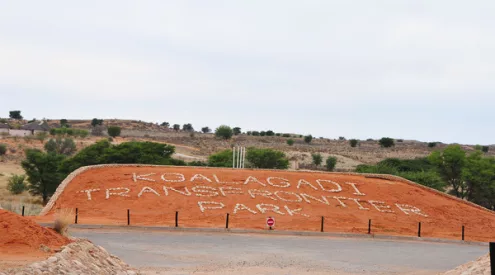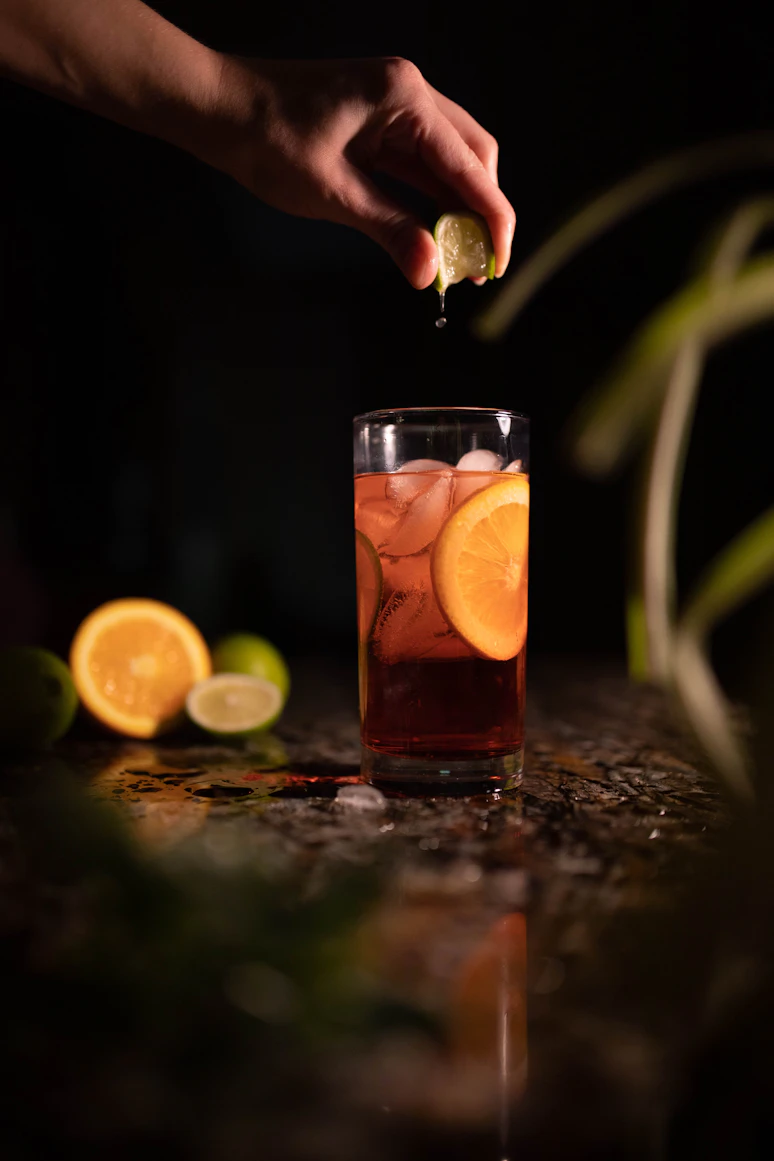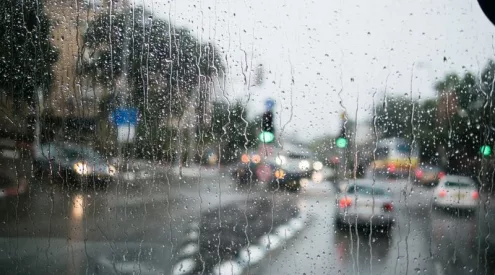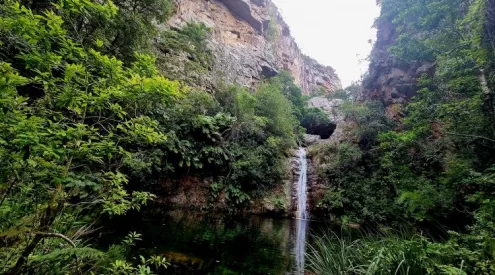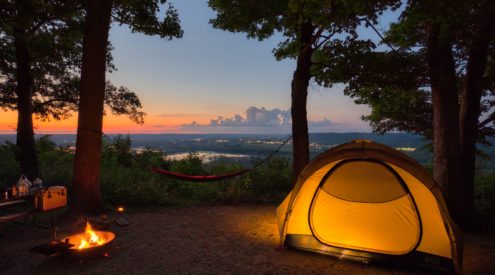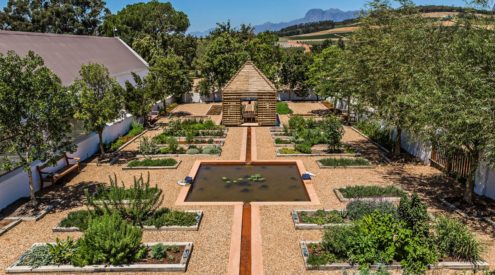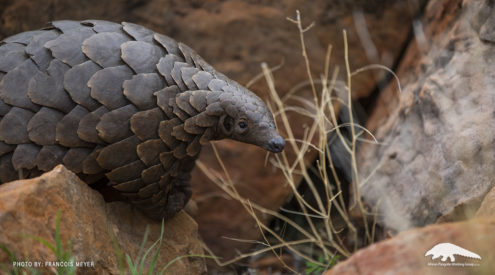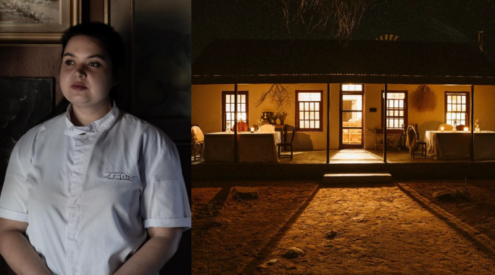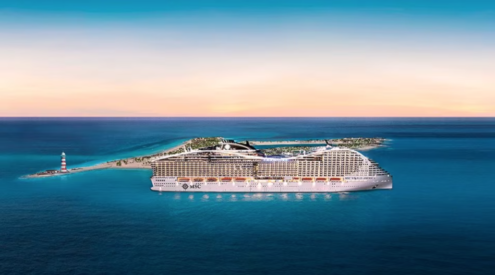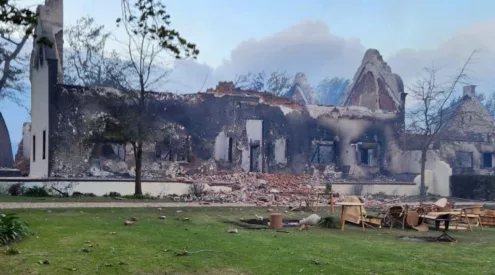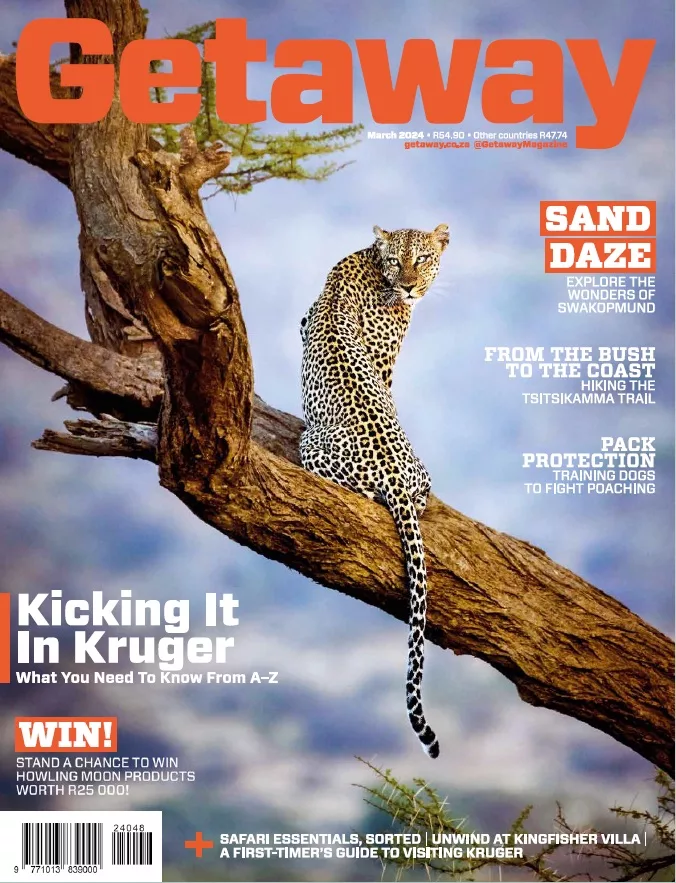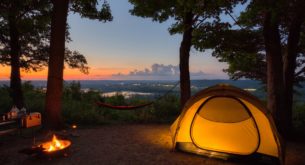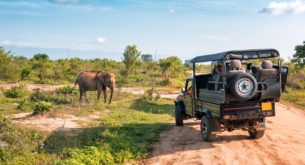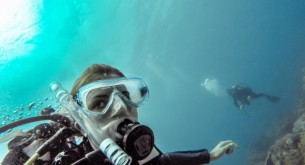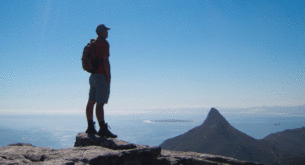Following the Sri Lanka Easter suicide bomb attacks on churches and hotels, which killed at least 250 people and injured hundreds, the US, Britain, New Zealand, Australia, India, and Israel have warned their citizens against travelling to the Asian country.
According to AFP, the European travel group TUI announced it had stopped taking bookings for Sri Lanka and the tour group says that ‘holiday-makers currently in Sri Lanka will be offered early flights home with around 350 travellers from Britain and Germany affected’.
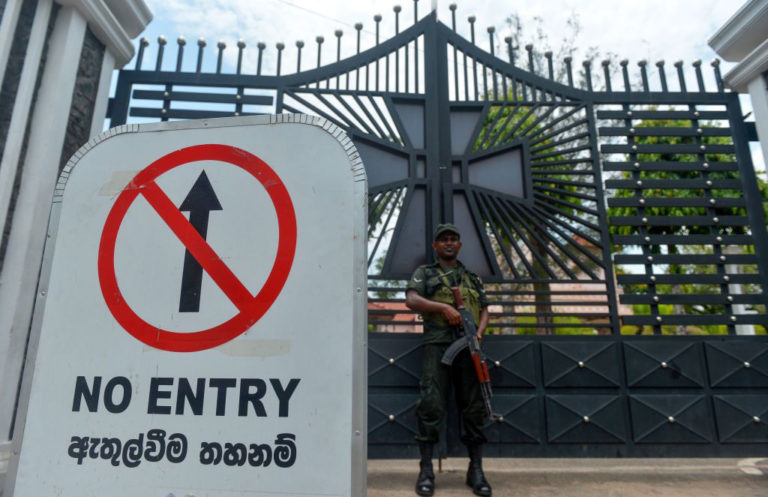
A Sri Lankan soldier stands guard near St. Sebastian’s Church in Negombo on 28 April 2019, a week after a series of bomb blasts targeting churches and luxury hotels on Easter Sunday in Sri Lanka. Photo credit should read Ishara S. Kodikara/ AFP/Getty Images.
We chatted to Capetonian Luke Kuhn who was in Sri Lanka when the bombs went off and who had this to say: ‘After our race we were booked into a hotel on the beach in Negombo. On Sunday morning just after breakfast the news broke about the bombings, one of which went off in San Sebastian Church, about a kilometre away from us.
We were due to go to Galle that day but as a result of the bombs there weren’t any taxis going anywhere and everyone was laying low. We managed to get a tuk-tuk to the airport and then managed to find someone willing to take us from there.
That evening there was a 6pm curfew and then there were curfews across the island every night we were there (all around 8 or 9pm), where we had to be back inside our hostel. Once we were down south there weren’t too many issues, but everyone was wary of curfews and all the local Sri Lankans were extremely helpful in making everyone feel safe.
We were advised to go to the airport five hours before our flight on Friday. The army was there checking every car that was going into the airport, as well as doing passport checks and bag checks on every single bag going in. The whole experience was very uncomfortable and we were just happy to get through passport control and to our boarding gate.
The love and care that we got before the bombs during our run there was amazing, people who had nothing giving us water, bananas, coconuts to help us survive the heat was amazing. Even after the bombs, the locals were constantly making sure we were safe and comfortable and that we were enjoying our time, despite what had just happened. Given everything that occurred, I would still recommend going there on holiday and will definitely return soon.’
Sri Lanka’s president, Maithruipala Sisirsena, has used an emergency law to ban face coverings in public from Monday, 29 April. The country is prohibiting any garment over the face that hinders identification to ensure national security, his office said.
Sri Lanka’s multicultural population of 21 million includes just under 10% Muslims and, of those, only a small minority of women ‘are thought to wear the face-covering niqab, or the burka – a one-piece veil that covers the face and body,’ according to BBC News.
On Friday, Sri Lanka’s Finance Minister Mangala Samaraweera said, ‘We expect a 30% drop in arrivals and that means a loss of about $1.5 billion (about R21.5 billion) in foreign exchange,’ as the country begins to feel the effects of the impact on its tourism industry.
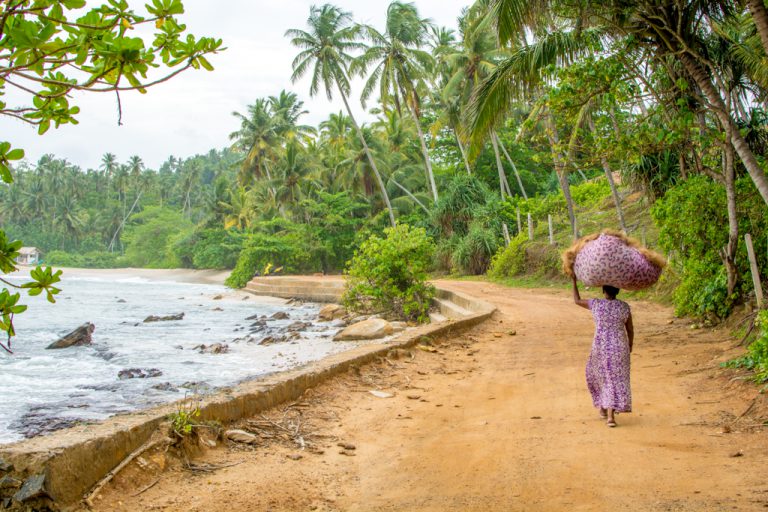
A woman carries coconut fibres along the beach in Dikwella. Image credit: Melanie van Zyl
Sri Lanka’s official tourism website put out a statement which said: ‘Our first priority on Sunday was to ensure that all tourists directly affected by the attack received emergency care and attention’ with details of emergency hotlines for locals and international visitors. The statement went on to reassure travellers that, ‘Our world-famous tourism sites, hotels, resorts and other tourist attractions will remain open as usual. There are no planned road closures or restrictions on movement anywhere in the island during the day and the nighttime curfew is only a temporary security measure. Free shuttle buses have been organised for the convenience of tourists between the airport and the cities of Colombo and Negombo.
Sri Lanka is a proudly diverse multicultural nation, in our darkest days we stand together – we will respond to hate with love and our trademark Sri Lankan resilience will endure, we will continue to build our celebrated hospitality industry in fact we will invest our resources with renewed vigour.’
Also read: Tea Time in Sri Lanka

